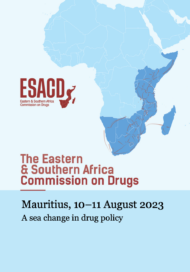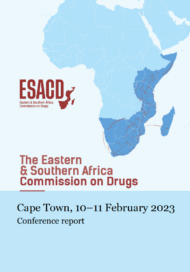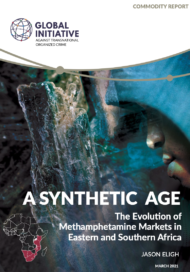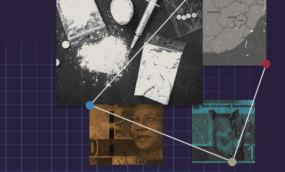Posted on 11 Aug 2023
Many countries in Eastern and Southern Africa are increasingly becoming pivotal transit hubs and destination points in the illicit drug trade, due in part to their strategic locations along main shipping routes through the Indian Ocean. This has led to the rise of organized criminal groups in these regions, exacerbating violence and corruption while undermining security and stability. Yet many countries in the region lack comprehensive and evidence-based drug policies with which to counter the problem productively, often with punitive measures prioritized over harm reduction and rehabilitation. To address these issues effectively, a shift towards more comprehensive policies is imperative, focusing on the root causes and consequences of drug use while providing rehabilitation and treatment options for people who use drugs (PWUD). This paper reports on the substantive points discussed at the latest conference of the Eastern and Southern Africa Commission on Drugs (ESACD), which was convened to formulate strategic ways to address these challenges and others.
On 10 and 11 August 2023, the ESACD held a meeting in Mauritius as the second in a series of consultations on drug policy and drug markets in the region. The meeting gathered representatives from civil society organizations, academia and the media alongside high-level officials, including the prime minister of Mauritius, Hon. Pravind Kumar Jugnauth; Manuela Riccio, chargé d’affaires of the European Union delegation to Mauritius; and the commissioners: the former president of South Africa, Kgalema Motlanthe, who chairs the ESACD; the former president of Mauritius, Cassam Uteem; the former president of Mozambique, Joaquim Chissano; the former president of the Seychelles, James Alix Michel; Willy Mutunga, former Chief Justice and President of the Supreme Court of Kenya; and Professor Quarraisha Abdool Karim, director of the Centre for the AIDS Programme of Research in South Africa (CAPRISA). The event was co-hosted by the EU, through the ENACT project, and the Global Initiative Against Transnational Organized Crime, which acts as the secretariat for the commission, providing administrative and diplomatic support.
The ESACD is a high-level commission linked to the Global Commission on Drug Policy championing drug policy reform and capacity building in Eastern and Southern Africa. It was formally launched in Cape Town in February 2023 with the mandate to enhance regional awareness around drug-related challenges, engender public discussions and engage with policymakers and other stakeholders with a view to catalyzing new approaches and reforms. Where the inaugural high-level meeting was wide-ranging (with a focus on public health risks, improving access to medicines, the impact of drug policies on young people and the role of civil society organizations in developing evidence-based policy), the Mauritius meeting centred on drug policy reform, improved law enforcement strategies for disrupting illicit markets and the expansion of maritime trafficking routes.
The resulting discussion was grounded in the identification and illumination of three fundamental notions that encapsulate the realities of the drug trade in the region. These principles should be used to guide a suitable response:
- There is still too much that we do not know about the drug markets of Eastern and Southern Africa.
- There is a body of drug policy advice and guidance frameworks available, but the approaches taken in the region do not seem to be working properly.
- There is a need to consider new priorities and innovative approaches when it comes to improving our response to drugs and drug markets in the region.
This report provides a summary of the key points raised during the August meeting.




